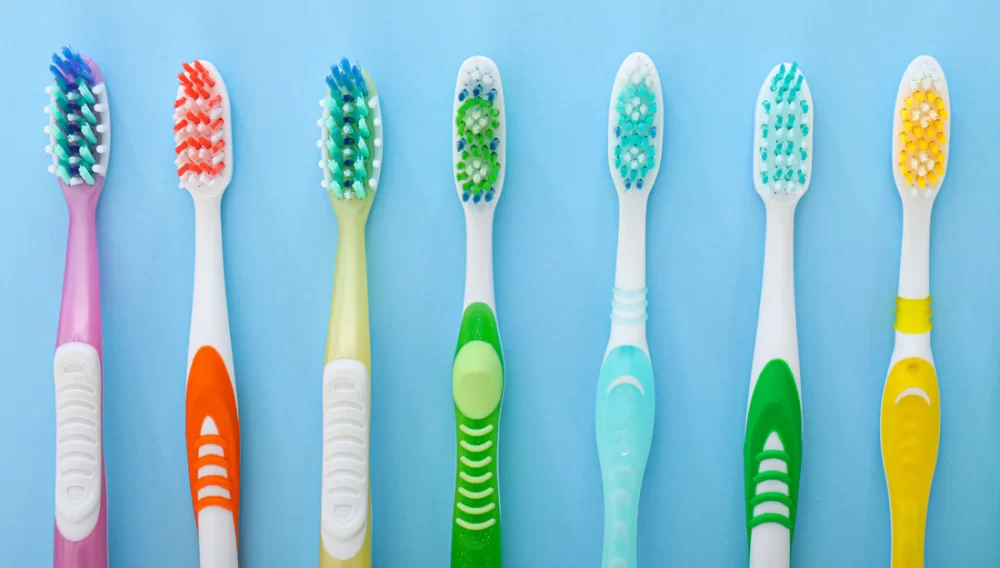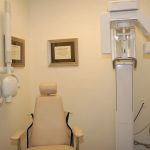
- how-to-choose-a-toothbrush-based-on-bristle-type
- manual-vs-electric-toothbrush-what-really-matters
- considering-head-size-and-handle-comfort
- dentist-recommendations-and-user-experiences
- common-mistakes-when-choosing-a-toothbrush
- where-to-find-the-best-toothbrush-for-you
1. How to Choose a Toothbrush Based on Bristle Type
When learning how to choose a toothbrush, one of the most important aspects to understand is the bristle type. Most dentists recommend soft bristles because they are effective at cleaning without damaging gums or enamel. Medium or hard bristles, while seemingly more robust, can often cause gum irritation or wear down tooth surfaces over time.
For people with sensitive gums or who brush vigorously, soft bristles are ideal. In fact, many dental experts consider soft-bristled brushes not just safer, but actually more efficient when used with proper technique. A good example is Sarah, a 29-year-old marketing executive, who used to experience gum bleeding. After switching to a soft-bristled toothbrush on her dentist's advice, her gum health improved significantly within weeks.
Understanding the science behind bristle type helps avoid common pitfalls in toothbrush selection. Always check for toothbrushes approved by dental associations, and for more personalized recommendations, explore curated options available at Dentistry Toothtruth.
2. Manual vs. Electric Toothbrush: What Really Matters
Another major question in toothbrush selection is whether to choose manual or electric. Each has its pros and cons. Manual toothbrushes are affordable, widely available, and easy to carry. However, electric toothbrushes offer consistent brushing movements and often include built-in timers, making it easier to maintain proper brushing duration.
Studies show electric toothbrushes can be more effective at reducing plaque and gingivitis. For instance, Tom, a 41-year-old graphic designer, shared that switching to an electric brush reduced his plaque buildup by almost half during his next dental cleaning. The technology did more of the work, allowing him to focus on technique and less on effort.
If you have limited dexterity, such as arthritis, or want a more thorough clean, an electric toothbrush is worth the investment. But even among electric options, features vary—oscillating heads, pressure sensors, or Bluetooth connectivity. Dentistry Toothtruth offers filtered comparisons to help users find the right match for their needs.
3. Considering Head Size and Handle Comfort
Toothbrush effectiveness also depends on design. The head size should allow easy access to all areas of your mouth, especially the back molars. For most adults, a toothbrush head that's one inch tall and a half-inch wide is ideal.
Equally important is the handle. An ergonomic grip can make a huge difference, especially for children or elderly individuals. I once recommended a thick-handled brush to my grandmother, who struggles with arthritis, and it immediately improved her brushing experience. These small ergonomic factors can elevate comfort and effectiveness.
Don’t overlook these aspects when shopping. Choosing a toothbrush that fits your hand and mouth well can improve consistency and thoroughness in your dental routine. Dentistry Toothtruth frequently features detailed breakdowns of toothbrush shapes and designs based on real user feedback.
4. Dentist Recommendations and User Experiences
When in doubt, always consider dentist recommendations. Dental professionals evaluate toothbrushes based on bristle quality, design, safety, and efficiency. Look for brushes with the ADA seal of approval, which ensures they meet certain performance standards.
User experiences also add a layer of trust. Online communities often share insights and honest feedback about toothbrush models. On forums like Reddit’s r/Dentistry or Quora, people commonly ask “how to choose a toothbrush?” and receive advice that blends science with personal experience.
At Dentistry Toothtruth, real reviews are carefully vetted to ensure authenticity, helping users feel confident in their choices. Whether you're buying your first toothbrush or upgrading, these dual perspectives—professional and personal—are invaluable.
5. Common Mistakes When Choosing a Toothbrush
Even with plenty of options on the market, many people make critical errors when selecting a toothbrush. One of the most common is assuming harder bristles clean better. In reality, they can damage enamel and gums. Another mistake is holding on to a toothbrush for too long. Dentists recommend replacing your toothbrush every three to four months, or sooner if the bristles are frayed.
Also, many people focus on price rather than quality. A cheap toothbrush may lack the features necessary for effective cleaning. Finally, not considering personal oral health needs—such as gum sensitivity or orthodontic appliances—can lead to poor choices.
Avoid these pitfalls by staying informed. Dentistry Toothtruth compiles expert tips, user feedback, and comparison tools to help you avoid regretful purchases and make informed decisions.
6. Where to Find the Best Toothbrush for You
The perfect toothbrush isn’t universal—it depends on your needs, habits, and oral conditions. Whether you’re focused on plaque removal, gum care, or child-friendly options, there’s a brush that fits. Shopping in-store may limit your choices, but platforms like Dentistry Toothtruth provide a curated selection with trusted recommendations.
Dentistry Toothtruth is more than a store—it’s a resource. With personalized suggestions, real reviews, and professional insights, it's designed to help users navigate the sea of options confidently. If you're still unsure how to choose a toothbrush, that’s the best place to start your journey.
Ultimately, the right toothbrush is one that suits your needs, feels comfortable to use, and encourages regular brushing habits. Taking time to make a well-informed choice can pay off with better oral health for years to come.







 Quantum Dental Group4.0 (65 review)
Quantum Dental Group4.0 (65 review) Forest Orthodontics and Pediatric Dentistry4.0 (285 review)
Forest Orthodontics and Pediatric Dentistry4.0 (285 review) CE Solano D.M.D. Oral & Maxillofacial Surgery3.0 (303 review)
CE Solano D.M.D. Oral & Maxillofacial Surgery3.0 (303 review) Ocean Dental4.0 (141 review)
Ocean Dental4.0 (141 review) Dr. Mark F. Kadoshima, DDS4.0 (5 review)
Dr. Mark F. Kadoshima, DDS4.0 (5 review) Legacy Smiles Dentistry4.0 (151 review)
Legacy Smiles Dentistry4.0 (151 review) The Importance of Oral Health Education During Pregnancy for a Healthy Pregnancy
The Importance of Oral Health Education During Pregnancy for a Healthy Pregnancy Best Tips for Brushing Your Teeth Properly for Healthy Gums: Essential Techniques for Oral Health
Best Tips for Brushing Your Teeth Properly for Healthy Gums: Essential Techniques for Oral Health Why Skipping Dental Checkups Can Lead to Bigger Oral Health Problems
Why Skipping Dental Checkups Can Lead to Bigger Oral Health Problems Advantages of Porcelain Dental Restorations
Advantages of Porcelain Dental Restorations How Can Diabetes Cause Tooth and Gum Problems? Preventing and Managing Oral Health Issues
How Can Diabetes Cause Tooth and Gum Problems? Preventing and Managing Oral Health Issues Healthy Habits for Promoting Good Oral Health and Hygiene: Tips for a Healthy Smile
Healthy Habits for Promoting Good Oral Health and Hygiene: Tips for a Healthy Smile